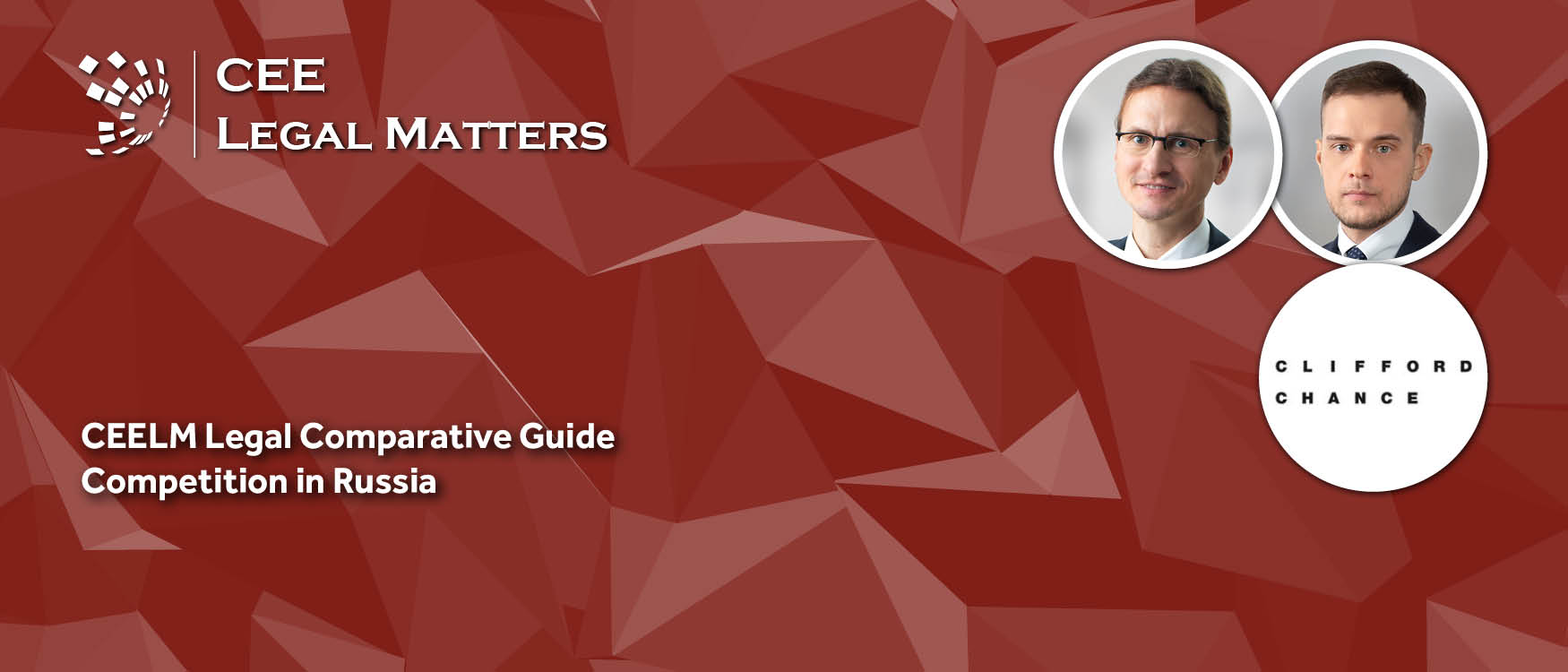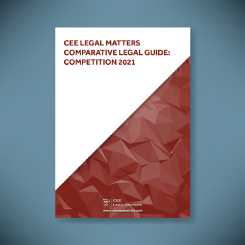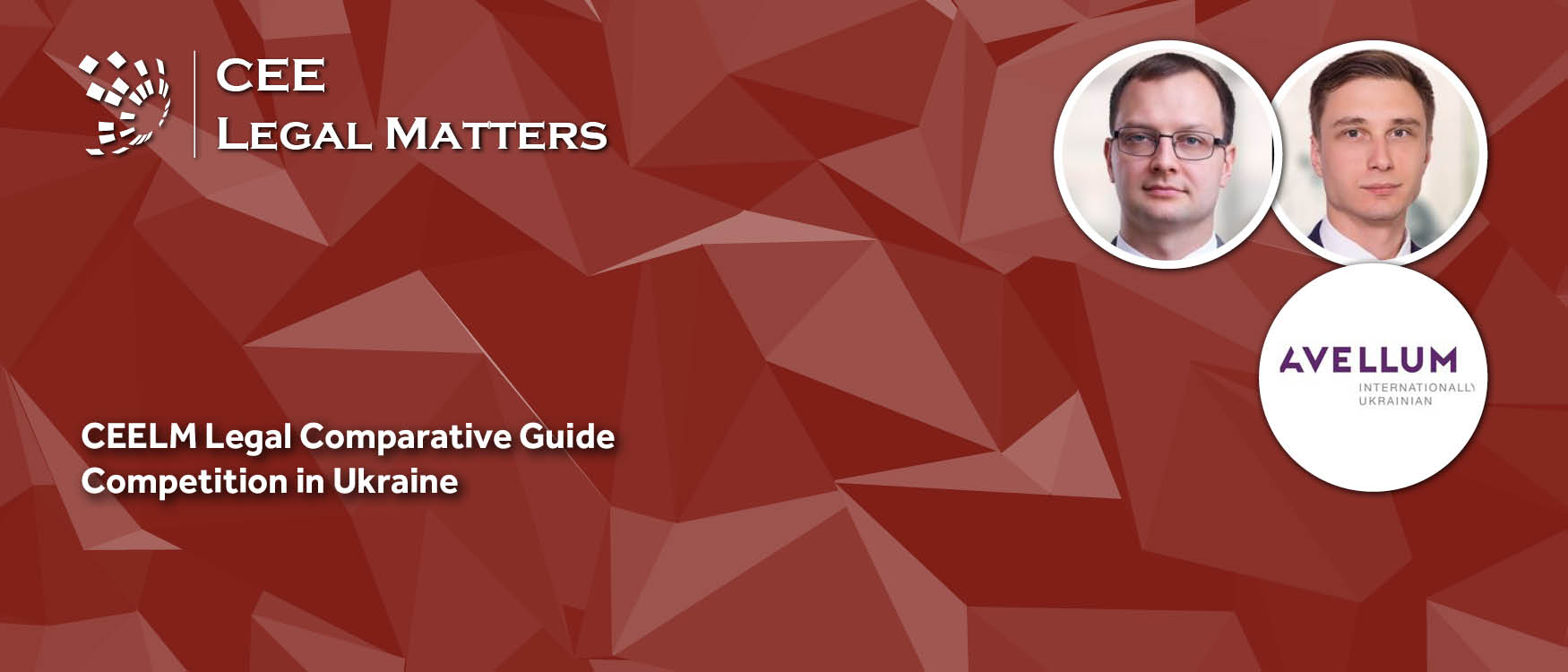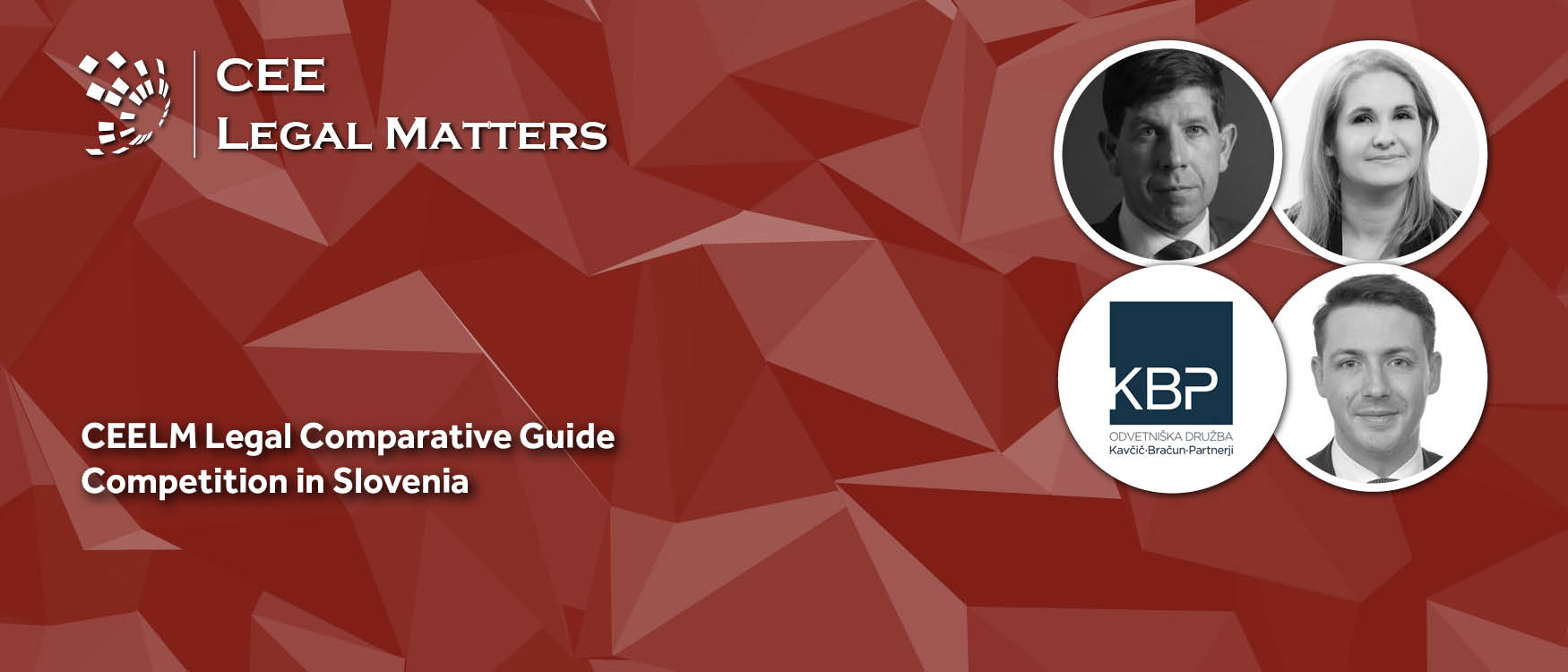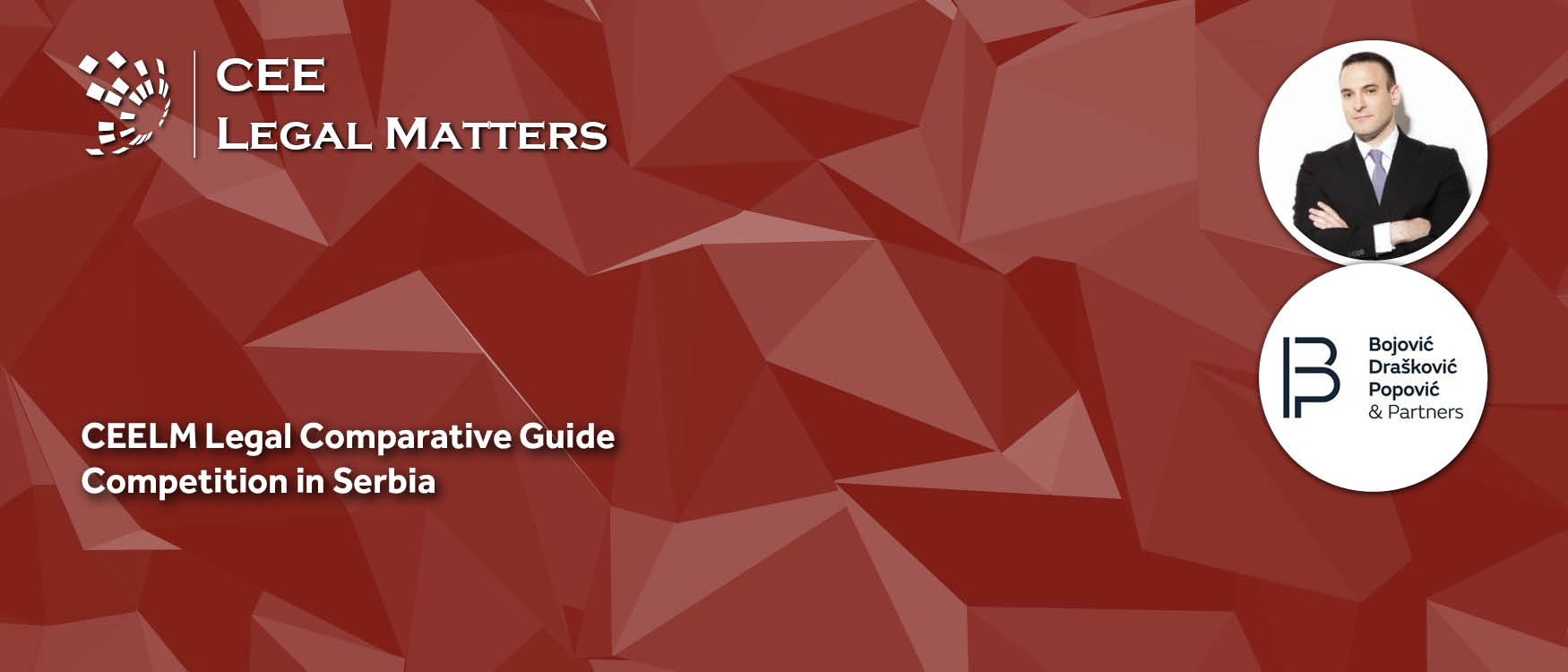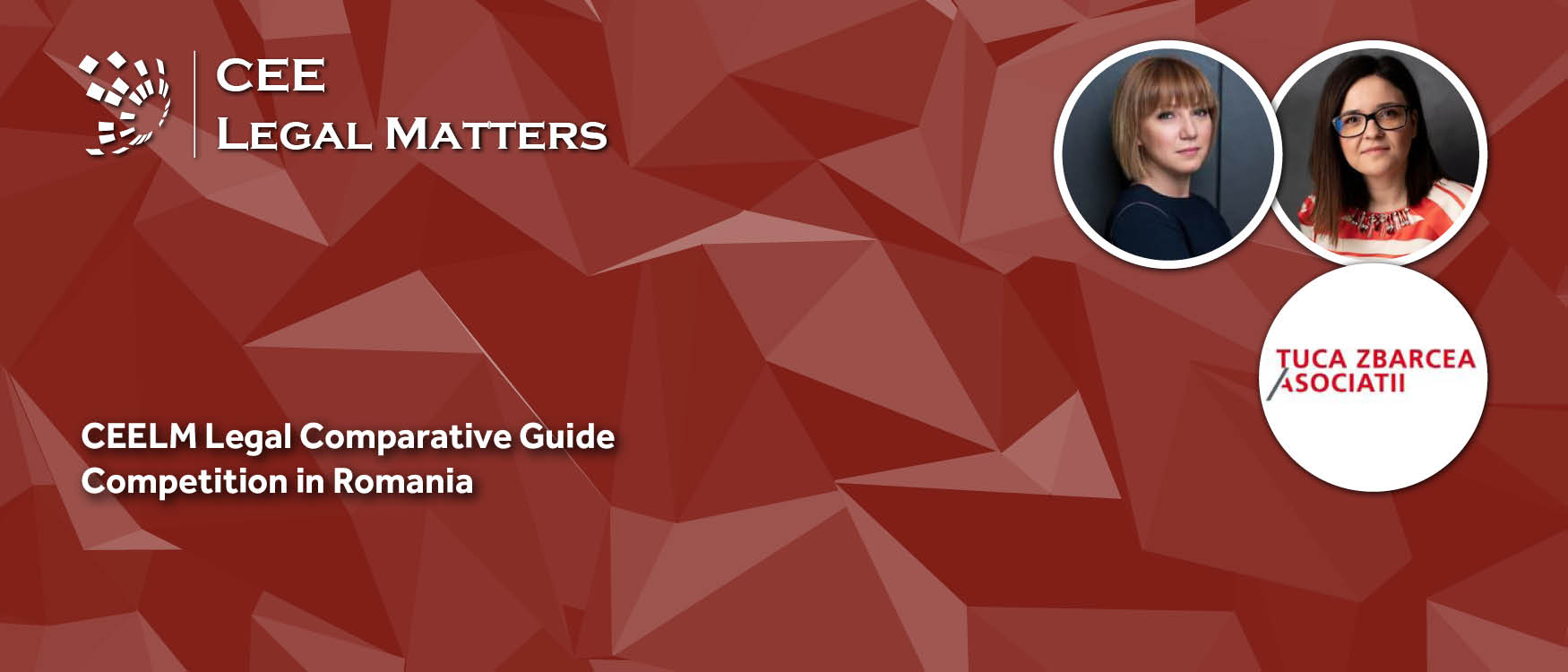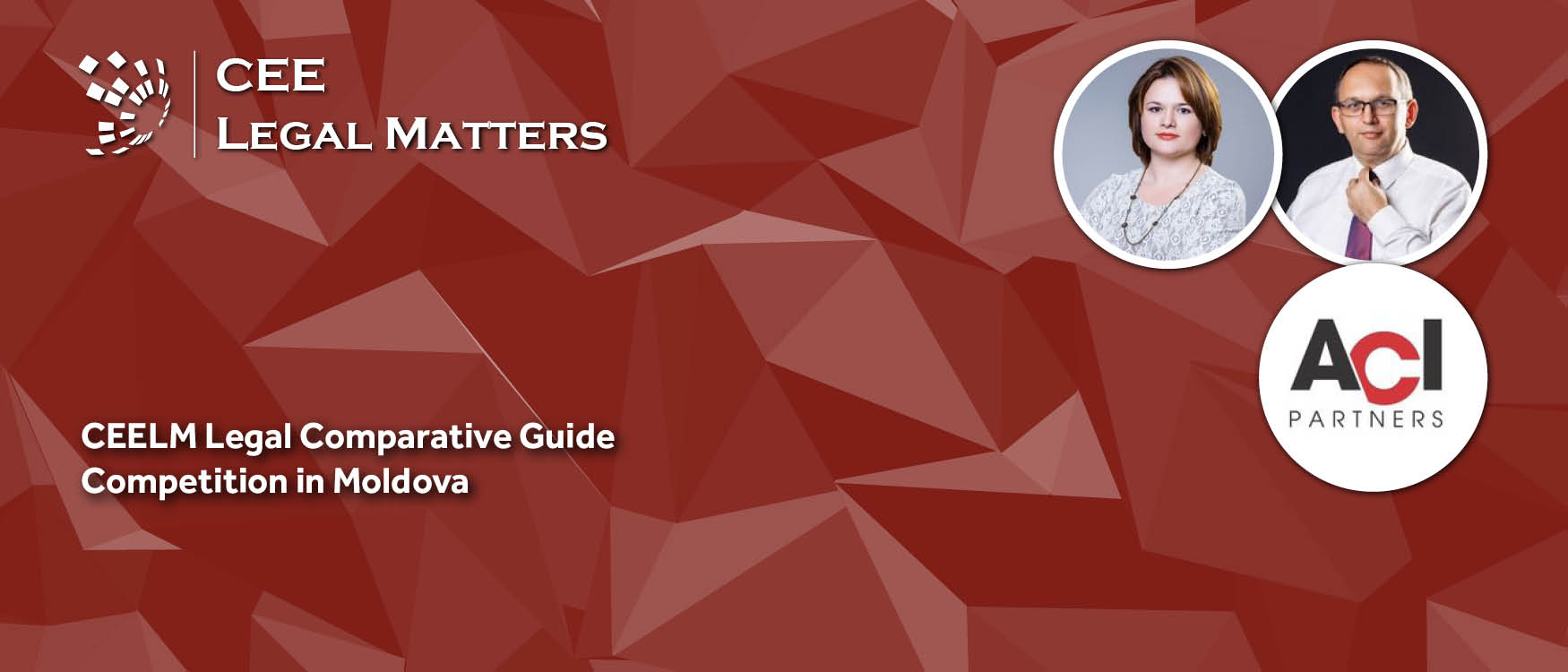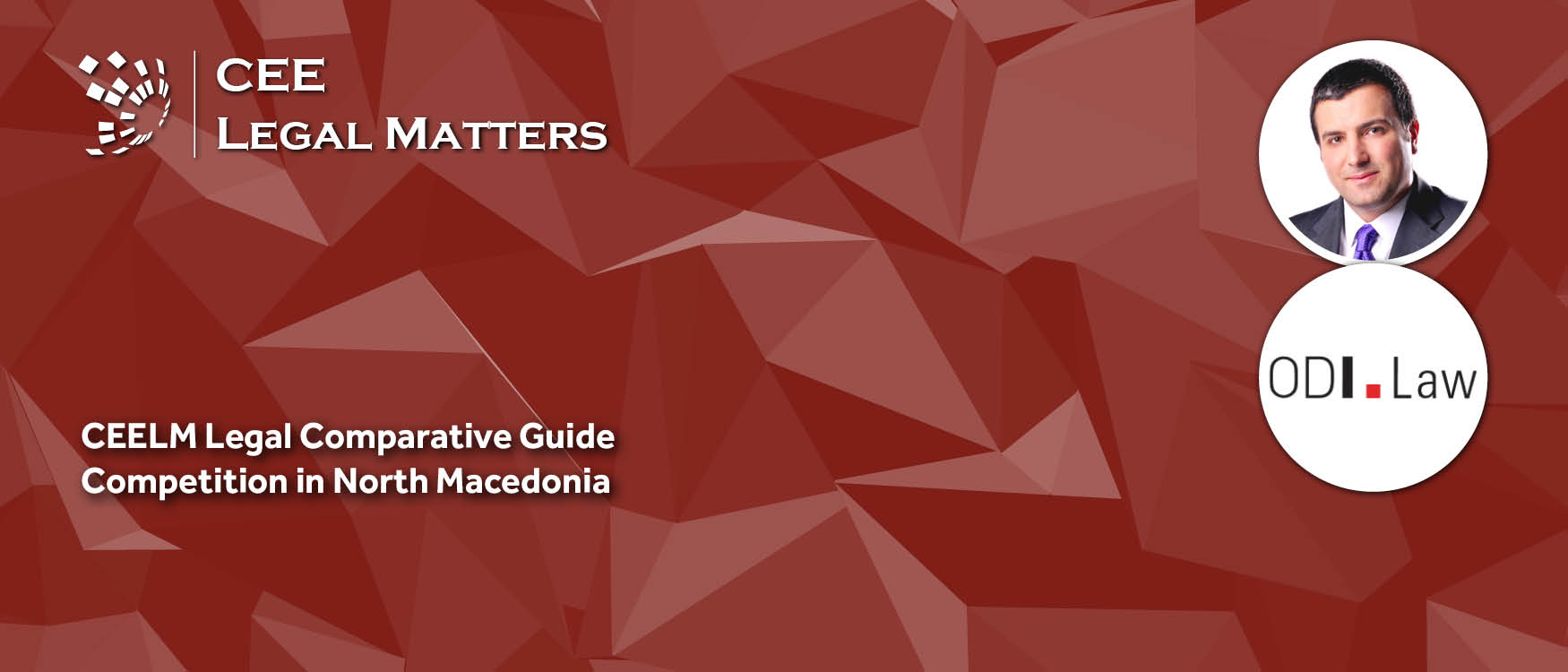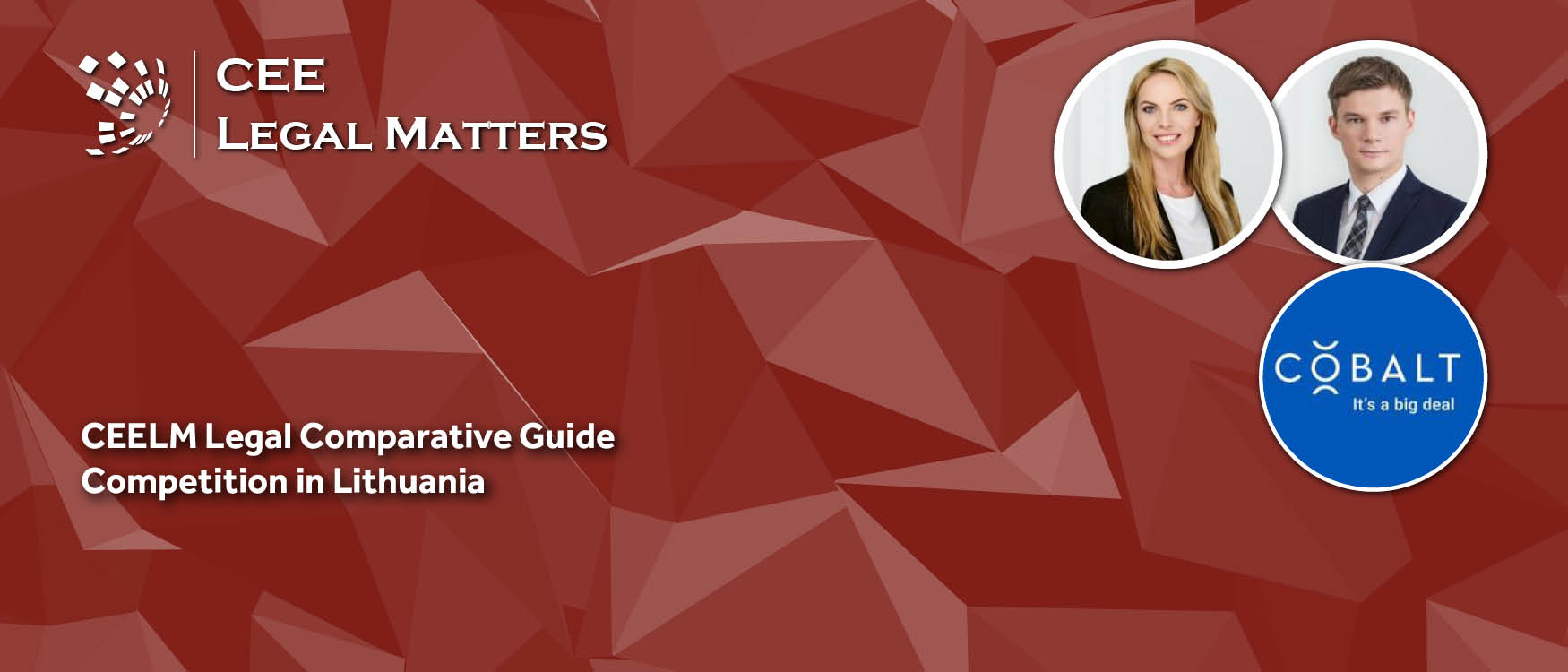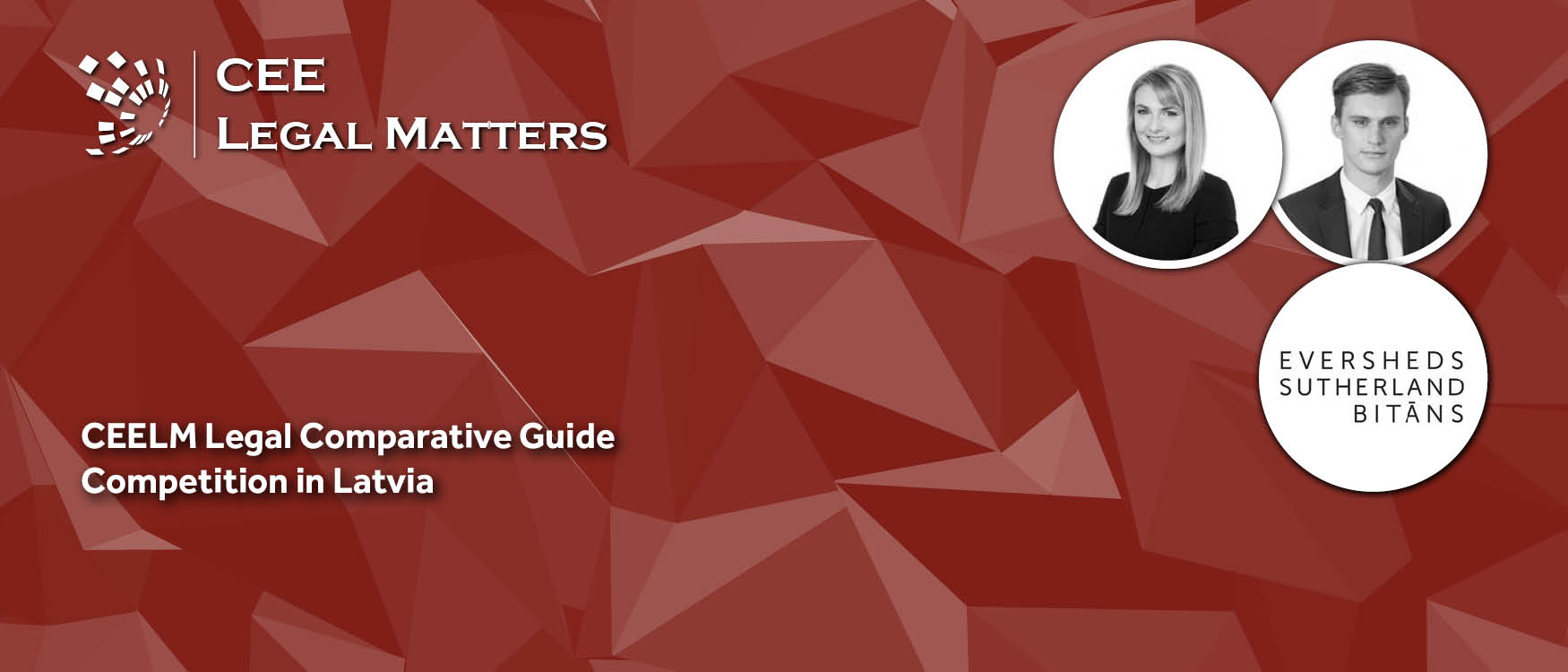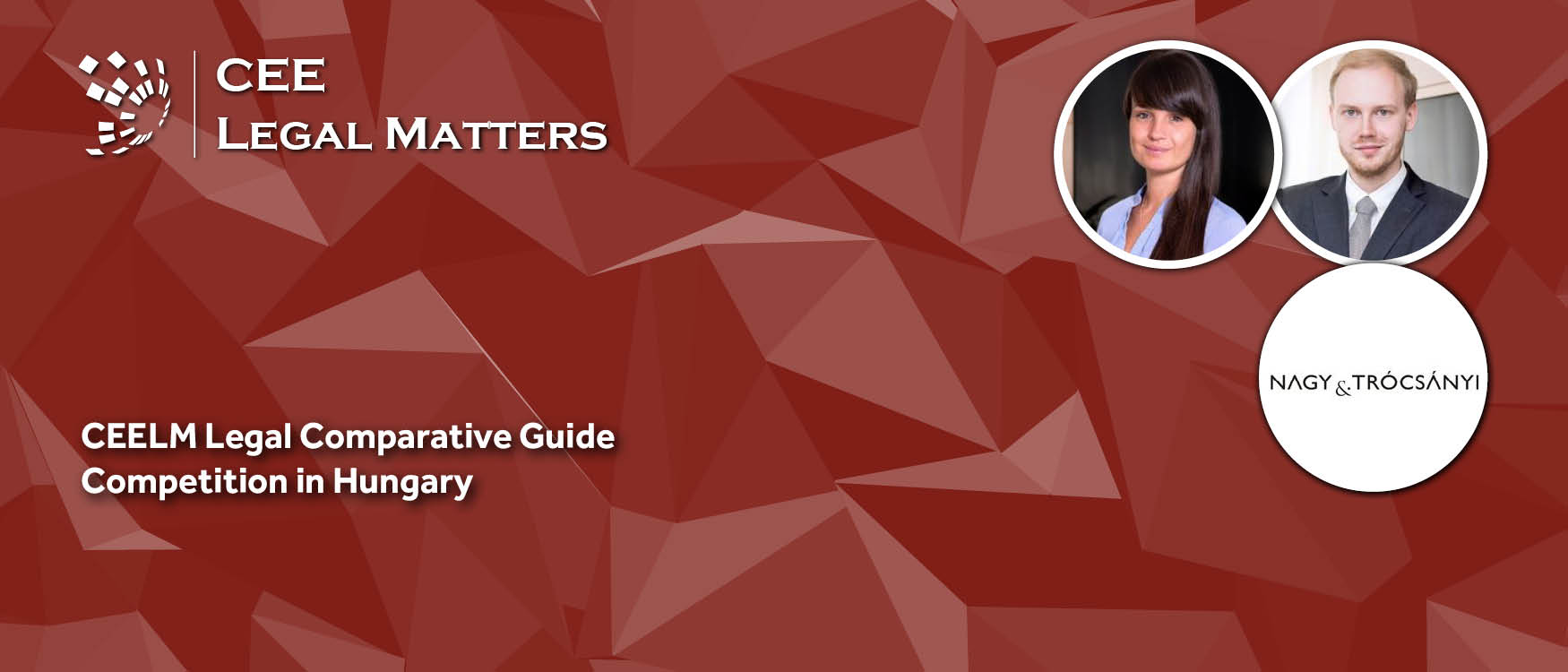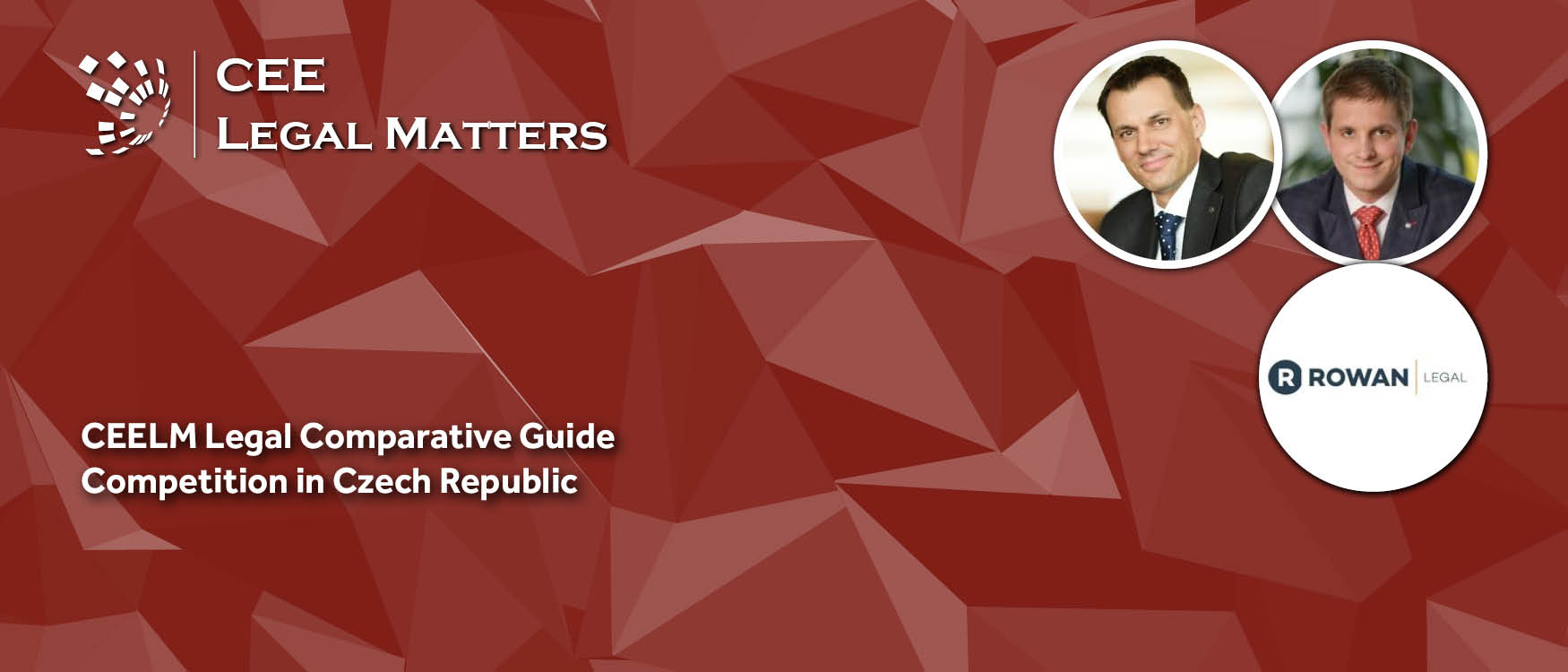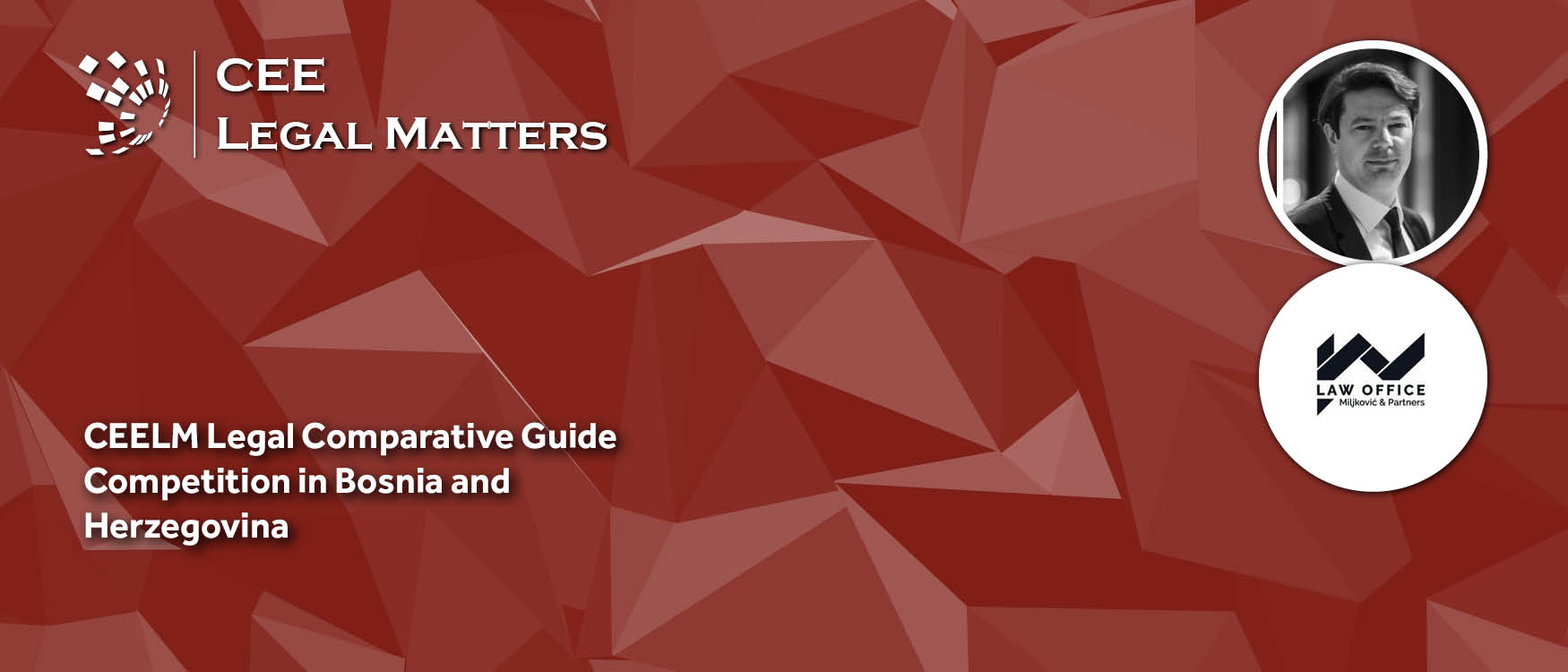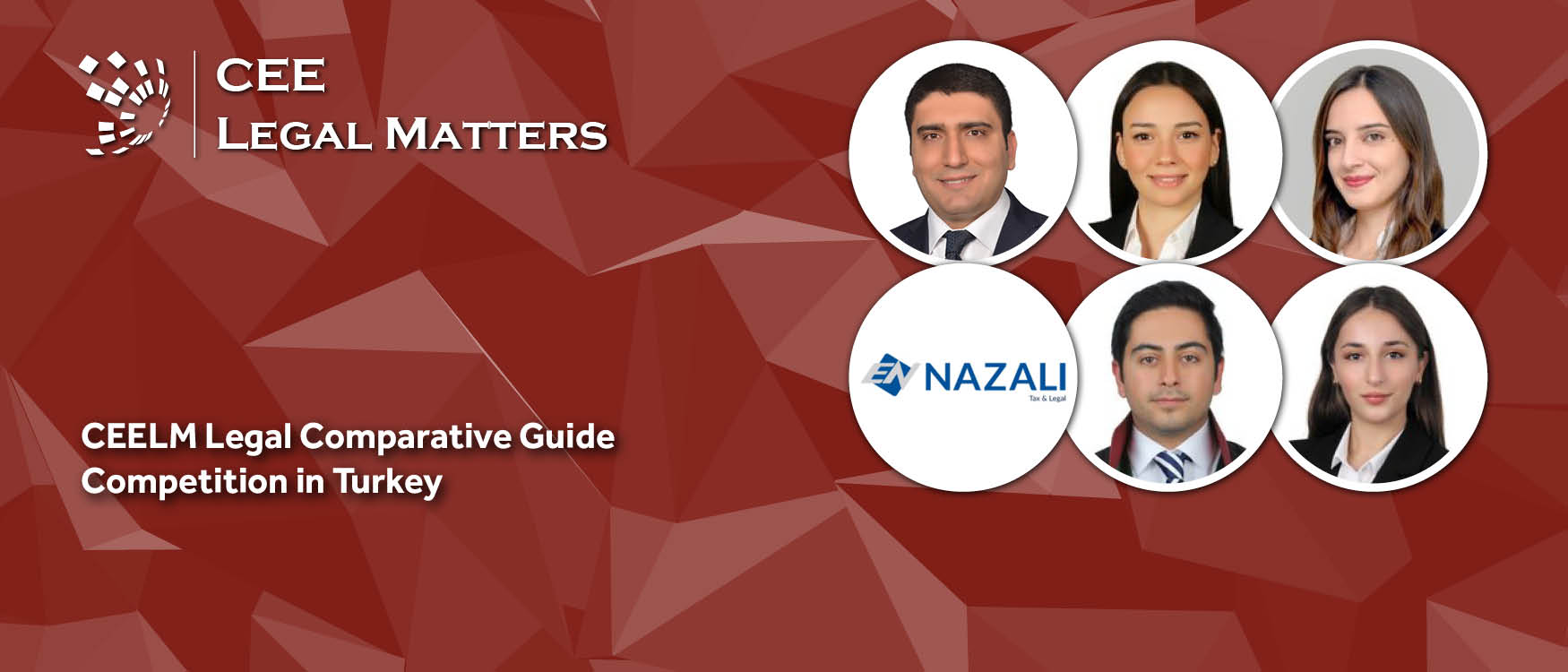Contributed by Clifford Chance.
1. What are the main competition-related pieces of legislation in Russia?
Russia's primary piece of competition-related legislation is Federal Law No. 135-FZ of July 26, 2006 On Protection of Competition (Competition Law). The Competition Law is the core of competition regulation in Russia, covering all of the key aspects in the field: (i) merger control; (ii) abuse of dominance; (iii) anti-competitive agreements; (iv) concerted practices; (v) coordination of economic activities; and (vi) unfair competition.
Apart from the Competition Law, the following acts dealing with foreign investment and natural monopolies are important components of competition-related regulation in Russia:
1.1 Key Federal Laws
(a) Federal Law No. 57-FZ of April 29, 2008 On the Procedure for Making Foreign Investments in Companies of Strategic Importance for National Defence and State Security (Strategic Investment Law) and Federal Law No. 160-FZ of July 9, 1999 On Foreign Investment in the Russian Federation (Foreign Investment Law). These laws regulate two separate clearance regimes for, respectively, foreign investments in Russian strategic industries and investments made by public foreign investors.
(b) Federal Law No. 147-FZ of August 17, 1995 On Natural Monopolies, which defines 'natural monopoly' and lists the economic areas that are natural monopolies. This law sets down obligations for natural monopoly entities, provides for price regulation, and so on.
1.2 Codes Setting Up The Framework for Sanctions
(a) The Administrative Offenses Code sets out the sanctions for competition law violations; and
(b) the Criminal Code regulates criminal liability, which is, however, only applicable in relation to cartels.
1.3 Orders and Decrees from the Federal Antimonopoly Service of Russia – Detailed Regulation in Particular Areas
(a) Order of the Federal Antimonopoly Service of Russia (FAS) No. 129 dated April 17, 2008, On Approval of the Form for Providing Information to the Antimonopoly Authority When Submitting the Applications and Notifications Referred to in Articles 27-31 of the Federal Law On Protection of Competition (as amended);
(b) Order of the FAS No. 293 dated November 20, 2006, On Approval of the Form for Providing the List of Persons That Belong to a Group (as amended);
(c) Decree of the Russian Federation Government No. 334 dated May 30, 2007, On Setting Thresholds for Antimonopoly Control Over Leasing Companies (as amended);
(d) Decree of the Russian Federation Government No. 1072 dated October 18, 2014, On Setting Thresholds for Antimonopoly Control Over Credit Institutions Supervised by the Central Bank of Russia (as amended);
1.4 Official Guidance from the Supreme Court and the FAS
(a) Decree of the Plenum of the Supreme Court of the Russian Federation No. 2 of March 4, 2021, On Certain Issues Arising in the Courts' Application of Competition Law;
(b) Digest of Case Law from Antitrust Cases and Related Administrative Cases, approved by the Presidium of the Supreme Court on March 16, 2016; and
(c) FAS Guidance No. 16 of June 11, 2021, On Certain Aspects of Merger Control Regulation.
2. Are there any notable recent (last 24 months) updates of the Russian competition legislation?
The FAS and its decisions drive legal and business developments in the field of competition. The last couple of years have seen a number of changes to practice – most of which have been driven by the regulator. There is a general trend of bringing competition regulation closer to the European Union model, despite numerous Russian specifics.
Below we summarise recent regulatory developments, although the overall antitrust framework has not changed in recent years. For international companies, the practical relevance of these recent changes is generally limited.
2.1 Compliance Act
Federal Law No. 33-FZ of March 1, 2020, On Amendments to the Competition Law (the Compliance Act) came into force on March 12, 2020. It aims to improve antitrust compliance by regulating internal compliance policies.
The law defines “antimonopoly compliance” as a system of legal and organizational measures aimed at ensuring that companies comply with competition legislation and at preventing competition offenses.
According to the Compliance Act, to be effective, an antitrust compliance policy must set out risk assessment procedures, mitigation measures, and procedures for making all employees aware of the policy. As to form, the policy must be in Russian and published on the corporation's website. Notably, the policy can either be adopted by the Russian corporation itself or introduced by another entity in its group, such as the global parent corporation.
Adoption of an antitrust compliance policy is voluntary. A corporation can voluntarily submit its policy to the FAS for review, which can provide a certain level of comfort. The FAS reviews the document within 30 days and provides a report as to whether the policy complies with the law.
It is important to note that the original idea was that having a functioning antitrust compliance policy in place would be treated as a mitigating factor when calculating fines, and the FAS included provisions to that effect in the first draft of the Compliance Act. Those provisions were then omitted by the Russian government, then raised again before parliament, which eventually decided not to enshrine the mitigation provisions in the final version of the Compliance Act. This took away a key incentive for companies to implement such policies, calling into question the practical value of the Compliance Act: the legal status of an antimonopoly compliance policy is the same whether it has been approved by the FAS or not.
Although obtaining FAS approval is not essential and only provides limited benefits, it is a step that might be seen as a sign of respect for the regulator and it does enable the corporation concerned to cite its policy should the need arise. Igor Artemiev, the former head of the FAS, has emphasized that the FAS has not given up on the idea of introducing more concrete legal benefits and the authority continues to lobby for statutory amendments to this end. In addition to a potential reduction of fines, the FAS is considering the possibility of completely releasing companies from liability if they have duly implemented a legally adequate policy.
2.2 Official Guidance Published by the Supreme Court and the FAS
In the summer of 2021, the FAS issued two sets of guidelines concerning merger control and antimonopoly compliance, which clarify numerous issues, although there was no general change of approach and the clarifications contained no major surprises.
- The merger control guidance describes, in particular, the regulator's approach to: clearing joint venture agreements; antitrust assessments of non-compete agreements; circumstances where the acquisition of negative control would require merger control clearance; and intragroup transactions that are not subject to merger control.
- The antitrust compliance guideline gives more detailed comments on the antimonopoly compliance program and particularly aims to introduce an exclusion of administrative liability for violating entities who have in place effective antimonopoly compliance policies that have been approved by the FAS. This provision in the guideline sounds like an attempt to introduce the more solid legal benefits that were originally discussed by the community.
In addition to this FAS guidance, on March 4, 2021, the Plenum of the Supreme Court of the Russian Federation issued its Decree No. 2 On Certain Issues Arising in Connection with the Courts' Application of the Competition Legislation. This guidance is aimed at making court practice more uniform when it comes to applying the Competition Law.
The Supreme Court addresses specific questions across all areas of antitrust regulation: (i) abuse of dominance; (ii) anti-competitive agreements and concerted practices; (iii) unfair competition; (iv) antitrust violations by public authorities; (v) public procurement; (vi) the powers of the antitrust authority; (vii) contesting antitrust authority acts or decisions; and (viii) private antitrust enforcement. The decree is meant to make practice consistent among market players, the state courts, and the FAS and its offices across Russia.
2.3 Fifth Antimonopoly Package Bill
The Fifth Antimonopoly Package is a set of draft amendments to federal laws which aims to introduce specific restrictions for IT companies. The rapid development of IT technologies has drawn particular focus from the FAS over the last five years, during which the FAS has launched a number of antitrust investigations against leading IT companies (e.g. Google, Apple, Lenovo, and Microsoft). Some of these cases have followed similar ones commenced by other regulators in Europe and Asia.
In particular, the bill envisages:
- prohibiting various forms of abuse by digital giants – the bill defines new dominance criteria for IT companies;
- introducing the “network effect” concept, which would mean that a product's consumer value would depend upon the number of consumers – this concept would apply when analyzing competition in a particular market, where transactions between seller and buyer are made using software on the web; and
- introducing restrictions on software owners if (i) the network effect from the use of their software "makes it possible to exert a decisive influence on the general conditions for the circulation of goods" and/or (ii) the software owner has more than 35% of the market for the services in question, and the owner's revenue from this activity exceeds RUB 400 million (approximately EUR 4.8 million) per annum.
The draft law is currently being discussed by the Russian Government. The FAS is keen to submit the finalized bill to the State Duma for further scrutiny so that it can be enacted into law in the course of 2022.
3. What are the main concerns of the national competition authority in terms of agreements between undertakings? How about the sanctioning record of the authority?
3.1 Anticompetitive Agreements
The general approach to horizontal and vertical agreements between undertakings is similar to what holds true in Western Europe. The prohibitions under Russian law are very similar to the European Union rules.
(a) Cartels
Cartels are agreements between competitors that lead or could lead to:
- prices (tariffs), discounts, mark-ups (surcharges), and/or additions to prices being set, fixed, and/or maintained;
- prices at tenders being increased, reduced, or maintained;
- the market being divided up by territory or according to the volume of sales or purchases, or the range of sellers or buyers;
- production of the goods in question being reduced or stopped; and
- refusals to contract with particular sellers or buyers (customers).
These agreements are per se prohibited by the Competition Law, so the mere fact of joining or creating a cartel is sufficient to establish a competition law violation and the FAS does not need to prove that the agreement has had a negative impact.
(b) Vertical Agreements Anti-competitive Per Se
Vertical agreements are anticompetitive per se if their clauses lead or could lead to:
- resale price-fixing/maintenance (save for setting a maximum resale price); and/or
- the buyer being contractually restrained from selling the products of the seller's competitors unless the buyer undertakes to distribute the seller's products under the seller's/manufacturer's trademark or other means of individuation.
(c) Other Anti-competitive Agreements
If neither of the above criteria is met, an agreement can still be declared anti-competitive by the regulator if it impedes or could impede effective competition in Russia. In particular, the law outlines the following scenarios in which effective competition would be likely to be impeded:
- the agreement creates unfavorable contract conditions for a counterparty;
- the agreement sets different prices for the same goods without any economic or technical justification;
- the agreement creates barriers to market entry or exit for other entities;
- the agreement sets conditions for joining a professional or other association.
The burden of proof is on the FAS – i.e. these agreements are deemed legal until the FAS proves that they impede or could impede effective competition in Russia.
(d) Safe Harbor Exemption
Vertical agreements between companies (except vertical agreements between financial organizations, which are subject to specific regulation) are permitted if each party to the agreement has a market share of less than 20%.
Franchising agreements are outside the scope of the Competition Law's restrictions on vertical agreements.
3.2 Share Acquisitions and Joint Ventures
(a) Mergers & acquisitions: As elsewhere in the world, the competition regulator in Russia has a strong focus on merger control, and the relevance of the foreign investment and strategic investment regimes has been increasing significantly in recent years.
(b) Joint ventures: Joint venture agreements often fall under the merger control/foreign investment/strategic investment regimes. There is no concept of full-function joint ventures in Russia.
Please refer to section 9 for more details on the clearance rules applicable to both of the above types of agreement.
4. Which competition law requirements should companies consider when entering into agreements concerning their activities on the Russian territory?
Please see questions 3 and 9.
5. Does a leniency policy apply in Russia?
5.1 General
A leniency program for competition law violations has been in force in Russia since 2008. It covers all forms of anti-competitive agreements and concerted actions. No other violations are eligible for the leniency program.
The program provides immunity or partial exemption from administrative liability and – subject to certain conditions – immunity from criminal liability for a cartel.
Applicants who have facilitated or initiated anticompetitive agreements are not eligible for leniency.
According to the statistics collected by the FAS, the number of leniency applications has been increasing over the past few years. The FAS states that it received 222 applications for leniency in 2020, 147 in 2019, and 97 in 2018. However, in practice leniency applications are rare due to numerous regulatory and practical uncertainties.
5.2 Leniency with Respect to Administrative Liability
(a) The first applicant for leniency can receive full immunity, contingent upon the following criteria being met (Leniency Criteria):
- The applicant provides documents/information that are sufficient to identify the violation. The information/documents are deemed sufficient if they answer the following questions: (i) who committed the offense? (ii) what was the offense? (iii) when was the offense committed? and (iv) why was the offense committed? All of these must be answered and, if they are not, the FAS deems the disclosure insufficient.
- The information provided was not already known to the FAS.
- The applicant has voluntarily stopped perpetuating the violation.
(b) Second and third applicants cannot count on full immunity but can benefit from receiving the lowest possible statutory fine for the violation in question. The FAS can reduce the fine even further if the infringing company's financial condition is poor and it meets any of the following criteria:
- the company's revenue has consistently gone down over the last three or more years;
- the company has negative operational capital;
- the company has long-outstanding accounts payable; or
- proceedings are underway for the company's bankruptcy.
The absolute minimum fine possible is half the lowest statutory fine for the Competition Law violation in question.
The second and third applicants can count on the reduced fine if they meet the Leniency Criteria.
(c) It is still an open question as to whether company managers can apply for leniency. The law says that only parties to the anticompetitive agreements can be eligible for leniency. As managers are not formally parties to such agreements, the leniency program would not apply to them at first glance.
However, according to the regulator, a manager of a violating company who was party to the anti-competitive agreement and who applied for leniency would be exempted from administrative liability provided that the company met all of the Leniency Criteria.
5.3 Leniency with Respect to Criminal Liability
Cartels are subject to criminal liability. All other anticompetitive agreements are subject to administrative penalties only, i.e. there is no risk of criminal prosecution.
Immunity from criminal liability is possible for the first applicant who:
- provides actively valuable statements that help in the investigation of the cartel;
- has compensated the damage or otherwise repaired the harm caused by the cartel; and
- has not committed any other criminal offenses.
Although employees and managers cannot submit their own applications for leniency in respect of administrative liability, they can do so when it comes to criminal liability.
There are no specific leniency options for second and third applicants. The criminal sanctions for them might be mitigated if the investigating body decides that the information they have disclosed is helpful in the criminal case.
6. How is unilateral conduct treated under Russian competition rules?
From a legislative perspective, the Russian rules on abuse of dominance are almost identical to the European Union rules. In addition, there is a special Russian concept concerning the illegal coordination of downstream markets. Finally, unfair competition is regulated in the framework of the general competition rules.
6.1 Abuse of Dominance
(a) The Russian dominance concept can be summarized as follows:
- Entities with a market share of less than 35% cannot be deemed dominant, except in exceptional circumstances of collective dominance.
- There is a rebuttable presumption of dominance if the undertaking in question has a market share of 50% or more. The FAS may, however, conclude that although the company does have more than 50% of the relevant market it still does not dominate that market.
- Finally, an undertaking can be deemed dominant if it has a market share of 35% to 50% if (i) there is little fluctuation in the shares of the relevant market, and (ii) the undertaking's share makes it difficult for other players to enter the market.
(b) Dominance is deemed abusive when it results or could result in (a) the prevention, elimination, or restriction of competition; or (b) the infringement of business-related rights of other undertakings or an indefinite range of consumers.
Similar to other jurisdictions, the law sets out a non-exhaustive list of abusive practices:
(i) the setting or maintenance of monopolistically high or low prices;
(ii) the recall of products, if this leads to an increase in prices for such products;
(iii) high-pressure selling on terms that either (a) are unfavorable to the other party, or (b) lie outside the subject matter of the agreement;
(iv) a decrease in production for no technical or economic reason;
(v) the setting of different prices for the same product for no technical or economic reason;
(vi) discrimination; and
(vii) the creation of barriers to market access for other potential players.
6.2 Coordination of Economic Activities
The coordination of economic activities is a specific Russian concept and means a situation in which a person (a business entity or an individual) instructs other business entities as to how they should run their business. Such coordination can relate to an entire business or only to certain lines of a business. Coordination typically arises with respect to downstream markets, e.g. where a manufacturer interferes with the resale of products by indirect distributors.
Risks arise from the coordination of economic activities if: (a) the coordinating entity/person is not in the same group as the business entities whose activities are being coordinated; (b) there are two or more undertakings whose activities are being coordinated; and (c) the coordinating entity/person has no presence on the market where it is coordinating other undertakings' activities.
The coordination of economic activities has much in common with the vertical agreements described in section 3. However, it applies in situations where the restriction in question is outside the actual contractual relationship.
6.3 Unfair Competition
It is a peculiarity of Russian competition law that unfair competition falls within the competence of the FAS. There is no exhaustive list of activities that can raise unfair competition concerns, but the Competition Law does outline seven main types of unfair competition:
- the distribution of false or incorrect information that can inflict losses upon an entity and/or harm its business;
- the provision of misleading information in respect of the nature, manner, and place of production, consumer characteristics, quality or quantity, or the manufacturer of goods;
- improper comparisons between goods produced by one entity and goods produced or sold by other entities;
- the unfair acquisition and use of exclusive rights to the means of individuation of a legal entity, goods, works, or services;
- the sale, exchange, or other release into circulation of goods in breach of intellectual property rights, except for the means by which a competitor is identified;
- the creation of confusion with a competitor's business or product; and
- the unlawful receipt, use, and disclosure of commercial secrets or other information protected by law.
7. Are there any recent local abuse cases of relevance?
The FAS has reviewed several abuse of dominance cases in the last two years. Similar to other jurisdictions, many abuse cases involve major IT companies. Below we mention three recent cases, although the level of the fines was modest compared to other jurisdictions.
(a) Booking.com
In 2020, a non-commercial organization called Opora Russia, which supports small and medium enterprises, lodged a complaint with the FAS against Booking.com B.V., which operates the booking.com hotel aggregator platform. Opora Russia claimed that Booking.com was abusing its dominant position by stopping hotels/guesthouses/apartments/etc. from showing their lowest prices on websites other than booking.com (including their own websites).
The FAS agreed with Opora Russia and found that Booking.com’s most-favored nation provision was abusive.
In August 2021, the FAS imposed a fine of approximately EUR 15 million on Booking.com.
(b) Apple
In 2019, Kaspersky Lab filed a complaint accusing Apple of abusive behavior on the market for mobile devices with iOS. In particular, Kaspersky Lab claimed that Apple used its dominant position to create a competitive advantage for its own Screen Time application and reduce the functionality of parental control applications developed by third parties. The FAS ruled against Apple and imposed a fine of approximately EUR 12 million.
Apple is currently challenging the decision in court.
In September 2021, the FAS issued an unrelated warning letter, asking Apple Inc. to remove anti-steering clauses from contracts with third-party developers. In particular, the FAS is arguing that Apple abuses its dominant market position by preventing app developers from directing users away from Apple’s in-app payment system and towards potentially cheaper ways of paying for products and other features embedded in their apps. Apple has not fulfilled the requirements of the warning letter, so in October 2021 the FAS opened a formal dominance case against Apple.
(c) Yandex
In early 2021, several companies lodged a complaint with the FAS about Yandex, which operates Russia’s largest search engine, alleging that the company discriminates against third-party services in favor of its own, and specifically that Yandex prioritizes its own services over third-party services in search results generated through the Yandex platform.
The FAS reviewed the complaint and in March 2021 issued a warning letter to Yandex. Yandex disagreed with the warning letter, and the FAS opened formal proceedings, which are ongoing.
8. What are the consequences of a competition law infringement?
Sanctions for competition law violations are equally applicable to Russian and non-Russian entities. The actual risk of sanctions depends on the specific circumstances. The overview below is a general guide only.
First of all, the FAS can issue a mandatory order obliging the parties to cease a restrictive practice, e.g. by amending their agreement and/or their contracts with local distributors.
The FAS can also impose fines and other sanctions. Sanctions are administrative in nature, not criminal:
(a) Company fines: There are turnover-pegged fines for abuse of dominance and anti-competitive agreements. Such fines are in the range of 1-15% of the violating entity’s turnover on the relevant market in Russia for dominance and cartel cases and the illegal use of IP where this constitutes unfair competition, and 1-5% for restrictive vertical agreements and other anti-competitive agreements. This means that a violating company can be fined based on its Russian annual turnover generated on the market concerned for the last calendar year.
When calculating fines, the FAS applies the following principles:
- The above percentages relate to the turnover generated by the company on the affected market, i.e. it does not matter whether or how much turnover is generated in any other markets on which the company is active.
- The FAS rarely defines the affected market as going beyond the territory of the Russian Federation when calculating fines.
- Fines are calculated on the basis of the turnover generated by the specific entity against which the case was opened, i.e. the global turnover generated by other group members is not taken into account.
- When setting a specific fine within the above corridors, the FAS takes any mitigating and/or aggravating circumstances into account.
Should the FAS hold that e.g. the agreement has led or could lead to the restriction of competition at public tenders (price maintenance or a price increase), the applicable administrative fine would be up to 50% of the tender’s starting price.
Companies that are held liable for unfair competition (other than the illegal use of IP) face relatively minor fixed fines of up to approximately EUR 6,000.
(b) Management’s personal liability: The FAS has the power to impose administrative fines on the individuals responsible for an antitrust violation. In practice, the FAS tends to fine the legal entity; fines imposed on individuals are less common, although possible. The level of such fines is minimal, approximately EUR 600, although fines can have broader consequences for managers, e.g. in the context of work permit regulation, visas, etc.
The law also provides that responsible officers can be disqualified for a period of up to three years for abuse of dominance, tender violations, or the illegal use of IP constituting unfair competition, and for a period of up to one year for restrictive vertical arrangements. In practice, however, disqualification is applied only rarely and in exceptional circumstances.
(c) Civil liability: A company that violates the antitrust rules can be held liable under civil law. In practice, such cases are relatively rare, although the FAS does tend to encourage claims for civil damages.
(d) Procedural aspects: In certain cases, before initiating abuse of dominance proceedings, the FAS is required to issue a warning letter to the company in question, giving it an opportunity to respond and/or adjust its market behavior. Such cases include unjustified refusals to supply and the imposition of disadvantageous conditions. This means that the violating company would normally be given an opportunity/time to adjust the terms of agreements that have been found to be anticompetitive or contracts with local distributors about which the FAS has raised concerns. The violating company will also be able to present its arguments to prove that the agreement cannot actually lead to a restriction of competition and/or should be deemed permissible under Russian law (because it benefits customers or for other reasons).
That said, a prior warning letter is not necessary for all types of alleged violations and the FAS can initiate antitrust proceedings without issuing a warning letter. Therefore, it is difficult to predict in a given case whether the FAS will issue a warning letter or immediately open a formal case. In other words, when making its risk assessment, the violating company should not rely on any presumed obligation on the part of the FAS to first send a warning letter before commencing formal proceedings.
9. Is there any competition law requirement in case of mergers & acquisitions occurring or impacting the Russian market?
Basically, there are three regimes that might apply to an M&A transaction with a potential impact on the Russian market: (a) the merger control regime; (b) the foreign investments regime; and (c) the strategic investments regime.
9.1 Merger Control Regime
General
Russia's merger control rules are largely similar to the regimes in other jurisdictions. The merger control rules include a set of notification requirements that distinguish and apply to three broad categories of transactions:
- Acquisition by way of acquiring shares, assets, or other controlling rights in relation to a Russian commercial organization or financial institution, or to a non-Russian target entity that satisfies the local presence test. Cross-border M&A transactions with a Russian element typically fall within the first category of transactions. They tend to involve a direct acquisition of shares in a Russian target or the acquisition of a non-Russian target that either controls a Russian legal entity or has substantial sales in Russia.
- The establishment, merger, or accession of Russian companies under the Russian corporate restructuring rules. The practical significance of this second category is very limited.
- Execution of joint venture agreements between competitors. This third category was introduced in 2016, and its importance has increased over the past five years.
Clearance of M&A transactions
The following types of acquisitions in the first category are subject to merger control by the FAS. Special rules exist for acquisitions involving financial institutions.
Acquisition of control over a Russian company:
(a) Direct acquisition of shares in a Russian company. Clearance is required once any of the following ownership thresholds is exceeded: 25%, 50%, and 75% of voting shares in a Russian joint-stock company or 1/3, 50%, and 2/3 of voting shares in a Russian limited liability company. The acquisition of shares by founders in the course of establishing a company is not subject to merger control.
(b) Acquisition of rights enabling the terms on which a Russian company conducts its business to be determined (the acquisition of control over a Russian company's foreign parent company generally falls within this category) and/or enabling the functions of a management company to be carried out in respect of a Russian company.
Acquisition of control over a foreign company with significant turnover in Russia (see the Foreign-to-foreign M&As section below for details):
(c) Acquisition of more than 50% of voting shares in the foreign company.
(d) Acquisition of rights enabling the terms on which the foreign company conducts its business to be determined or enabling the functions of a management company to be carried out.
Acquisition of assets located in Russia:
(e) Acquisition of production and/or intangible assets located in Russia, where the book value of the assets being transferred exceeds 20% of the book value of the transferor's total production and intangible assets.
Such acquisitions are also subject to merger control review if implemented through several interrelated transactions. There is a statutory exemption from this rule for transfers of land plots and real estate assets that are not used for industrial purposes.
Thresholds:
The acquisitions referred to above are subject to pre-completion notification and their performance must be suspended pending FAS clearance if:
- the combined book value of the assets of the acquiring group and the target group (or of the group disposing of assets, as the case may be) exceeds RUB 7 billion (approximately EUR 85 million) and, concurrently, the book value of the assets of the target group exceeds RUB 400 million (approximately EUR 5 million); or
- the combined turnover of the acquiring group and the target group (the group disposing of assets) exceeds RUB 10 billion (approximately EUR 120 million) and, concurrently, the book value of the assets of the target group exceeds RUB 400 million (approximately EUR 5 million).
Foreign-to-foreign transactions:
Foreign-to-foreign transactions fall under the Russian merger control rules where the target group includes (i) Russian entities or (ii) entities that directly or indirectly control Russian entities or (iii) entities that own substantial assets located in Russia or (iv) entities with a turnover exceeding RUB 1 billion (approximately EUR 12 million) from operations in Russia during the year preceding the transaction.
There is no statutory guidance for calculating the threshold referred to in item (iv) above. Historically, the understanding has been that the threshold should be assessed for each non-Russian company individually. However, according to FAS guidance, the threshold should be calculated on an aggregated basis, i.e. for all non-Russian companies within the target group.
Joint Ventures
Two types of joint ventures are distinguished: joint ventures between competitors, and all other joint ventures.
(f) The establishment of any joint venture may require (i) clearance of the joint venture agreement itself and/or (ii) general merger clearance (see section above for details). In other words, the creation of a joint venture is treated as an acquisition of shares, assets or rights by the newly created joint venture from its founders. Consequently, joint ventures do not normally require clearance under the general rules if (i) no legal entity is formed or (ii) the new entity is funded solely by cash contributions.
(g) The situation is different, however, when a joint venture is formed between competitors. Such joint ventures are always subject to mandatory merger clearance, irrespective of their corporate nature.
(h) According to the FAS guidelines, an agreement may be classed as a joint venture agreement if it provides that the parties (i) combine their resources or make mutual investments aimed at achieving the joint venture's goals and (ii) jointly bear the risks associated with the joint venture's business. Therefore, potentially, any agreement providing for cooperation between the parties in order to conduct business in Russia may be subject to clearance, including cooperation agreements and shareholders agreements.
That said, SHAs that regulate purely corporate matters are unlikely to be subject to clearance, unless they in some way relate to the parties' market activities (e.g. if the SHA includes a non-compete clause).
It is important to note that joint venture agreements are subject to pre-completion notification irrespective of whether the entity in question is a fully functioning joint venture.
(i) The law does not provide any clear criteria for determining whether a joint venture agreement is Russia-related. According to the FAS's guidance, a joint venture agreement should be deemed to be related to Russia if any one of the following conditions is met:
- the JV entity is/will be registered in Russia; or
- the JV entity has/will have a Russian subsidiary; or
- the JV entity has been/will be established to conduct business in Russia (e.g. business involving direct supplies to Russia).
This list of criteria is not exhaustive but it does cover the vast majority of cases in which a joint venture agreement may be subject to prior clearance.
(j) Neither does the Competition Law give a specific definition of “competitors.” It is therefore not clear whether joint ventures between potential competitors are subject to clearance. The FAS tends to interpret the relevant provisions of the Competition Law quite broadly and, according to the FAS's guidance on the Competition Law, joint ventures between potential competitors do require merger clearance. Hence, prior clearance might be required for the execution of a joint venture agreement between parties that have not been active in Russia prior to the establishment of the joint venture.
It is therefore advisable to assume that notice must be given of the conclusion of any Russia-related joint venture agreement, including joint ventures that involve a new market entry.
That said, there have been cases where the FAS has ruled that the establishment of a joint venture as an alliance between companies that are not direct competitors (i.e. that do not act on the same markets but on adjacent markets) is not subject to clearance but, to date, these cases have been few and far between.
(k) For the sake of completeness, joint venture agreements, shareholders' agreements, and other agreements concerning the creation of joint ventures that could potentially restrict competition in Russia can be voluntarily submitted to the FAS prior to their implementation, in order to obtain clearance or an individual exemption. If a joint venture agreement does not trigger the mandatory clearance process (e.g. the financial thresholds are not met), the parties can still opt to follow the voluntary clearance procedure in order to rule out the antitrust risks attendant upon the various restrictive arrangements that JVAs often include (e.g. non-compete clauses). The procedure here is comparable to the European Commission's former “Form AB procedure.”
Penalties
Failure to obtain prior clearance is punishable with a relatively small administrative fine ranging from RUB 300,000 to 500,000 (approximately EUR 3,600 to 6,000) for each application or target, depending on the approach taken by the FAS. The fine is imposed against the applicant (the direct acquirer of control).
Further, a transaction consummated without clearance may be invalidated (a company established without clearance may be liquidated and merged companies may be demerged) by the Russian courts upon an application by the FAS. The transaction may be declared invalid on Russian territory by the Russian state court if the FAS proves that the transaction (company establishment/merger) restricts or could lead to the restriction of competition in Russia.
If an applicant submits incomplete or misleading information in its application, this constitutes an administrative offense, which is punishable with a relatively small fine for the applicant of approximately EUR 6,000.
In addition, the corporate officers of an applicant that has failed to submit the requisite notification can be fined approximately EUR 300. Whilst this sanction has rarely been used, we do note an increasing tendency for the competition authority to seek to apply it alongside the fines imposed on the companies themselves. Fines can also have broader consequences, particularly for company officers who are foreign nationals.
9.2 Public Foreign Investment Regime
The public foreign investment regime applies to public foreign investors only. This regime is triggered when a governmental or international organization or any of their subsidiaries (including subsidiaries incorporated in the Russian Federation) (Public Foreign Investors) contemplate the direct or indirect acquisition of either (i) 25% or more of shares in a Russian entity or (ii) any veto power in relation to a Russian entity.
Prior clearance under the foreign investment regime is required for acquisitions by foreign state-controlled entities of (i) more than 25% of the voting shares in a Russian legal entity or (ii) any veto power in relation to a Russian legal entity. If the clearance requirement under the Foreign Investment Law is triggered, the foreign investor must submit a pre-completion filing to the FAS.
Transactions that do not involve Russian legal entities, i.e. where the target group has no (direct or indirect) Russian subsidiaries, are beyond the scope of the foreign investment regime. This means that it does not matter whether the foreign company in question has significant turnover and/or representative offices/branches in Russia; neither factor creates a sufficient local nexus for the transaction to fall under Russia's foreign investment rules.
It is important to note that no separate filing under the foreign investment regime is required if the transaction is submitted for clearance under the strategic investment regime as described below.
Penalties for failing to obtain prior clearance under the foreign investment regime are the same as for breaching the strategic investment rules.
9.3 Strategic Investment Regime
(a) Applicability
The strategic investment rules are found mainly in the Strategic Investment Law. They apply to all types of foreign investors: individuals (including Russian nationals with dual citizenship); legal entities (including Russian companies under foreign control); groups that include a foreign investor (Foreign Investors); and, in particular, Public Foreign Investors, that enter into transactions involving (directly or indirectly) significant assets of or shares in a Strategic Entity (as defined below), and/or certain controlling and veto rights in relation to a Strategic Entity.
The provisions of the Strategic Investment Law apply only to transactions for the transfer of shares in or assets of Strategic Entities. They do not apply to situations where an existing (non-strategic) legal entity controlled by a Foreign Investor commences operations that are strategic in nature (although there may be exceptions, such as certain PPP projects, which can, arguably, fall within the scope of the Strategic Investment Law).
(b) Strategic Entities
A strategic entity is defined by the Strategic Investment Law as an entity incorporated in the Russian Federation that carries on at least one activity of strategic importance (Strategic Entity). Article 6 of the Strategic Investment Law lists 46 types of activity that are deemed to be of strategic importance. These can broadly be divided into four categories:
- Natural Resources: this category includes activity affecting geophysical processes, geological exploration, and the development of natural resources, in cases where the natural resources in question are located in a subsoil block that is deemed to be “of federal importance;”
- Media: this includes television and radio broadcasting, and certain printing and publishing activities;
- Defense and sensitive businesses: this includes activity connected with weapons and military equipment, radioactive materials, space, aviation, encryption and security assessment, and surveillance of infrastructure and means of transportation;
- Activities of natural monopolies: this includes the activities of not only certain communications and railway companies (which have a dominant position on the Russian market) but also various natural monopolies.
Any involvement by a Russian entity in an activity of strategic importance is sufficient for that entity to be deemed a Strategic Entity, irrespective of whether the activity in question is its core business. An entity can also be deemed a Strategic Entity if it merely holds a license for a strategic activity, even if it does not actually engage in that activity. Additionally, according to recent FAS practice, any entity engaging in activity that is not strategic per se but is necessary to facilitate a strategic activity can also be deemed a Strategic Entity.
The Strategic Investment Law establishes special rules for foreign investment in a subsoil strategic entity, which is defined as a Strategic Entity that conducts a geological study, and/or the analysis and recovery of subsoil resources from a “subsoil block of federal importance.”
A subsoil block may be deemed to be of federal importance if it meets any one of the following criteria:
- it contains deposits of uranium, extra-pure quartz, yttrium rare earth elements, nickel, cobalt, tantalum, niobium, beryllium or lithium, primary deposits of diamonds, or primary (metalliferous) deposits of platinum metals, with reserves recorded in the State Balance of Mineral Reserves;
- it is within the territory of the Russian Federation and contains (according to the State Balance of Mineral Reserves):
– more than 70 million tonnes of recoverable oil reserves;
– more than 50 billion cubic meters of natural gas reserves;
– more than 50 tonnes of lode gold reserves;
– more than 500,000 tonnes of copper reserves;
- it is located in inland or territorial waters or on the continental shelf of the Russian Federation; and
- its use necessitates the use of land within designated defense or security zones of the Russian Federation.
(c) Transactions that Trigger the Strategic Investment Regime
Prior Approval with Respect to a Foreign Investor:
Prior approval is required for transactions that would allow a Foreign Investor:
- to control a Strategic Entity or a Subsoil Strategic Entity (see the Definition of “control” section below); or
- to acquire any additional shares in a Subsoil Strategic Entity, where the Foreign Investor holds 25% to 75% of the shares in the Subsoil Strategic Entity prior to the transaction (except in cases where the Foreign Investor's shareholding will not increase following the transaction); or
- to acquire fixed assets of a Strategic Entity or a Subsoil Strategic Entity that are worth 25% or more of the book value of the entity's total assets.
If a Foreign Investor acquires control over a Strategic Entity or a Subsoil Strategic Entity because of changes in the shareholding structure, without a transaction being concluded or new shares acquired (e.g. as a result of shares being redeemed), the Foreign Investor should submit an application for clearance of the acquisition of control within three months of the date of the acquisition.
Prior Approval with Respect to a Public Foreign Investor:
A special regime with lower filing thresholds (compared to the general regime for Foreign Investors) applies to investments by Public Foreign Investors.
A Public Foreign Investor must obtain prior approval for the following transactions:
- direct or indirect acquisition of more than 5% of shares in a Subsoil Strategic Entity;
- direct or indirect acquisition of more than 25% of shares in or any veto power in relation to a Strategic Entity.
The above requirements do not apply to transactions involving certain international financial organizations, such as the European Bank for Reconstruction and Development, the Multilateral Investment Guarantee Agency, the International Development Association, and the International Finance Corporation. The Russian government keeps a list of such organizations; there are currently 14 of them.
Prior Approval at the Russian Prime Minister's Request:
The Chairman of the Governmental Commission for Control over Foreign Investment in the Russian Federation (Commission) is entitled to issue ad hoc resolutions requiring that prior approval be obtained under the strategic investment regime for a given transaction if the chairman deems it necessary in the interests of national defense and state security.
The law is broadly worded, suggesting that such resolutions can be issued in relation to virtually any transaction by a Foreign Investor involving any Russian entity, whether strategic or not.
Definition of Control:
The Strategic Investment Law contains a unique and complex concept of “control.” It stipulates that a Foreign Investor is deemed to exercise control over a Strategic Entity or Subsoil Strategic Entity if the Foreign Investor directly or indirectly:
- holds:
– more than 50% of the voting shares in the Strategic Entity; or
– 25% or more of the voting shares in the Subsoil Strategic Entity; or
- has the right to appoint:
– more than 50% of the members of the board of directors, management board, or other management body of the Strategic Entity; or
– 25% or more of the members of the board of directors, management board, or other management body of the Subsoil Strategic Entity; or
- has the right to appoint what is called the “single-person executive body” (e.g. the CEO) of the Strategic Entity/Subsoil Strategic Entity (as the case may be); or
- is entitled to determine the decisions taken by the Strategic Entity/Subsoil Strategic Entity (as the case may be), including, without limitation,
– on the basis of an agreement; or
– by virtue of being a management company of the Strategic Entity/Subsoil Strategic Entity; or
– due to a shareholding structure that gives the Foreign Investor, although it owns less than 50% of the Strategic Entity, the power to determine the decisions of the Strategic Entity (e.g. where the stake held by each of the other shareholders is smaller than the Foreign Investor's stake).
(d) Post-Completion Notifications
The following transactions may be concluded without prior approval but do require a post-completion notice to be submitted within 45 calendar days of the date they are concluded:
- acquisition by a Foreign Investor of 5% or more of the shares in a Strategic Entity or Subsoil Strategic Entity; and
- acquisition by a Public Foreign Investor of 5% or more of the shares in a Strategic Entity.
In addition, the Foreign Investor or Public Foreign Investor, as the case may be, must submit a post-completion closing notice for any transaction previously approved through the prior-approval process. This notice should also be submitted within 45 calendar days of the closing date.
(e) Pre-Completion Notice
The law says that a Foreign Investor contemplating the acquisition of shares in a Strategic Entity/Subsoil Strategic Entity must disclose its beneficiaries to the FAS where such disclosure could affect the decision as to whether the contemplated transaction requires prior clearance.
This applies to cases in which a Foreign Investor (but not a Public Foreign Investor) intends to acquire 25% to 50% of a Strategic Entity or 5% to 25% of a Subsoil Strategic Entity. In such cases, the Foreign Investor should disclose its beneficiaries to the FAS at least 30 calendar days prior to the closing date. The Foreign Investor should ensure that the information disclosed remains true and accurate as of the closing date.
(f) Penalties
Transactions that need prior approval under the strategic investment regime but are closed in breach of that regime are null and void. The consequences of invalidity established by the general provisions of Russian civil law apply to such transactions, including the obligation that each party returns to the other all property and/or money transferred under the transaction.
If for any reason the civil-law consequences of the transaction's invalidity cannot be applied, the Russian courts have the power to strip the shares acquired by the investor of all voting rights (such shares are not counted when determining whether there is a quorum at shareholders' meetings).
The same penalty (deprivation of voting rights) applies (i) if a transaction is cleared conditionally but the Foreign Investor/Public Foreign Investor fails to comply with the conditions imposed, and (ii) for failure to submit a post-completion notice.
Another penalty available to the courts is to invalidate shareholders' decisions, decisions of management bodies, and/or contracts made by the relevant Strategic Entity/Subsoil Strategic Entity following the transaction that was closed in breach of the Strategic Investment Law.
Failure to obtain prior approval may also give rise to administrative penalties, although the fines are quite low. The Russian Administrative Offenses Code establishes fines of up to EUR 12,000 for legal entities and up to EUR 600 for their responsible officers. Similar fines may be imposed for the submission of filings containing incorrect information.
10. What is the normal merger review period?
10.1 Merger control regime
The review period under the merger control regime is 30 calendar days (Phase I), which may be extended by two months (Phase II). In addition, preparing a merger control filing for a non-Russian applicant normally takes approximately three to five weeks (due to apostilles, translations, couriering, etc.).
The law does not provide a list of grounds for an extension. Rather, the FAS can put the review into Phase II on its own, with no obligation for it to provide the parties with the rationale underlying this. Normally, the process can be extended into Phase II if the case team needs to clear up additional questions about the filing. In such cases, they either issue a request for the parties to provide additional information or gather the outstanding data from their internal sources and other state regulators.
In the vast majority of cases, no-issue deals get cleared by the FAS within Phase I. There are normally no major delays. That said, unlike in many other jurisdictions, in Russia, there is no automatic clearance upon expiry of Phase I, so an extension into Phase II can never be ruled out. FAS case teams often have very high workloads and they might issue additional requests in order to gain time. It is also common in private equity deals for the FAS to ask additional questions about the investor level.
This does not mean that the FAS always exhausts all of the additional two months. It occasionally does happen – particularly if there are indeed substantive competition issues – but the FAS often has the merger control clearance decision ready within the first two or three weeks of Phase II.
In exceptional situations, the review period can be extended if the FAS decides to impose conditions precedent to the closing. In such rare cases, the initial 30-day period can be extended by up to nine months. Once the FAS is provided with evidence that the conditions have been satisfied, it has 30 calendar days to decide whether to accept them and grant clearance. If the parties have not fulfilled the conditions by the end of the extended review period, clearance of the transaction is denied.
Further, if the transaction is subject to both merger clearance and strategic investment/foreign investment clearance, the merger control review is suspended indefinitely pending the strategic investment/foreign investment clearance.
The FAS can return a pre-completion notification within the first 10 calendar days following its submission if it is found to be incomplete. Once the 10-day period has elapsed, the notification can (normally) be assumed to have been accepted by the FAS.
Under the Russian merger control rules, there is an obligation to suspend implementation of a transaction until pre-closing clearance has been obtained from the FAS.
10.2 Public foreign investment regime
The Foreign Investment Law is vague when it comes to review timing. It can be argued that the review period is 14 calendar days, but in practice, the FAS typically takes one month to review a filing.
10.3 Strategic investment regime
The timeline for review under the strategic investment regime differs significantly from merger control and public foreign investment review. The duration of strategic investment reviews sometimes creates a serious obstacle to the completion of global transactions.
The Strategic Investment Law distinguishes the following three major stages of the application review process:
- The preliminary review of the application by the FAS (up to 14 calendar days). The FAS checks whether the application and supporting documents have been submitted in full and in the format prescribed by the Strategic Investment Law. It also checks whether the transaction is subject to review under the strategic investments regime;
- The analysis of the impact of the transaction by the FAS, the FSB, and other governmental bodies (approximately one to two months). The FAS sends the application to the FSB and other governmental bodies and works with them in order that they can issue opinions on the impact of the transaction;
- The Commission's review of the application and decision on the application (approximately two to five months, sometimes longer). In practice, the Commission meets intermittently (two to four times a year).
The Commission may impose certain conditions for an applicant with respect to the strategic company prior to clearance. If the applicant accepts the conditions, a formal agreement is negotiated and concluded between the applicant and the FAS within 30 days of the Commission's decision to impose the conditions.
Formally, the application review process must be completed within three months from the date the FAS registers the application. In exceptional cases, the Commission extends that period by a further three months. In practice, the entire review process can take more than six months, partly due to the fact that the Commission only sits two to four times a year.
11. Are there any fees applicable where transactions are subject to local competition review?
11.1 Merger Control Regime
The filing fee is nominal: a fixed amount of approximately EUR 500, which must be paid prior to submission of the notification.
There have been instances in which the FAS has charged the filing fee for each step of a notified transaction, arguing that each step needed a separate approval.
There are no fees for post-transfer notifications.
11.2 Strategic Investment and Public Foreign Investment Regimes
The strategic investment and foreign investment regimes do not include any filing fees.
12. Is there any possibility for companies to obtain State Aid in Russia? If yes, under what conditions?
12.1 General Background
The Competition Law contains a separate chapter dealing with state aid. State aid plays an important role for many businesses. However, in practice, state aid procedures are very different from those commonly found in the European Union. For international companies, the state aid rules and procedures set out in the Competition Law are of limited practical relevance.
“State aid” means the provision of certain privileges to one undertaking over other market players by state or municipal authorities. Those authorities affect this by providing property, rights, preferences, or guarantees, thereby making the conditions for doing business more favorable for the aided company.
12.2 Procedure for Getting State Aid
State (or municipal) aid is granted subject to preliminary written approval from the FAS and where the aid is requested for one of the designated purposes listed in the Competition Law:
- ensuring vital services for the population in Arctic regions and equivalent areas;
- developing science and education;
- conducting fundamental scientific research;
- protecting the environment;
- developing and conserving cultural heritage;
- developing sports and physical culture;
- agricultural production;
- national defense and security;
- rendering social services for the people;
- health and labor protection; and
- supporting small or medium businesses.
The rules for state aid distinguish themselves from all of the other regimes discussed in this guide by the fact that responsibility for applying for clearance from the FAS lies with the authority that intends to grant the aid. The application normally includes a set of supporting documents showing, amongst other things, what the aid is wanted for and how much is sought and listing the beneficiary's activities over the two years preceding the date of the FAS application.
The FAS reviews then either approves or rejects the application. Approval can be unconditional or subject to particular restrictions, such as, for example: (i) a deadline by which the state aid must be used, (ii) the range of persons to whom the state aid may be given, (iii) a cap on the amount of aid, (iv) the scope or purposes of the aid, and/or (v) other restrictions that might affect competition.
12.3 Review Period
The FAS reviews the application within one month of the date that a complete filing is submitted, with an option to extend the review period by two months if the FAS believes that the state (municipal) aid might impede effective competition.
As under the merger control rules, the FAS can return a filing within the first 10 calendar days following submission if it is found to be incomplete. Once the 10-day period has elapsed, the notification can (normally) be assumed to have been accepted by the FAS.
13. What were the major changes brought by the COVID-19 crisis in the field? How likely is it for these changes to stick?
When the pandemic struck the economy, the FAS – like many state bodies in Russia and abroad – implemented a number of measures to reduce the administrative burden on business. These changes were positively met by both the business community and the general public.
(a) Merger Control Unaffected
Russian merger control reviews were largely unaffected by the pandemic and mostly continued without delay. The FAS procedure for acceptance of notifications and supporting documentation was simplified. Case handlers have primarily been working from home, but have been reachable and cooperative.
(b) Flexible Approach by the Regulator to Investigations
The FAS has shown a great deal of flexibility in the context of antitrust investigations, procedures, and enforcement. For example, it has:
- moved antitrust case hearings online;
- recognized the pandemic and lockdowns as force majeure events in contractual matters;
- allowed deferrals and installments for antitrust fines; and
- stopped conducting dawn raids for the duration of COVID-19 lockdowns.
One can expect that the regulator will continue and develop some of these practices in the post-pandemic world (e.g. online case hearings) but most of the measures the FAS took were bespoke, i.e. unique to the COVID-19 situation, so they will likely be discontinued once things have returned to normal.
(c) Focus on Pricing Cases
Similar to regulators in other jurisdictions, the FAS has switched its focus to analyzing markets for socially important goods, essential goods, medicines, and other products that are in high demand. The FAS regional offices monitor prices and the presence, shortage, or absence of goods on a daily basis. A special hotline has been set up for companies and consumers to report product shortages and possible violations of competition law.
A significant number of cases have been initiated against companies that are alleged to have increased prices excessively. Such cases were dealt with under the abuse of dominance and cartel rules.

